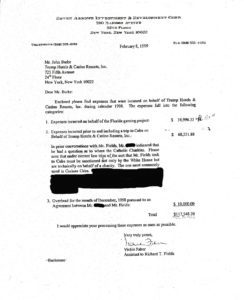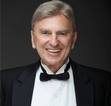Gerard Dion's Blog, page 5
July 31, 2017
Cuba’s public face of diplomacy with US leaving post
Michael Weissenstein and Andrea Rodriguez, ABC News
The public face of Cuba’s diplomatic opening with the United States is leaving her post to become ambassador to Canada, officials said Sunday.
Josefina Vidal was sworn in to her new role at a ceremony presided over by President Raul Castro, according to Cuban media. Officials said Vidal’s deputy Gustavo Machin would also leave the division of U.S. affairs to become ambassador to Spain.
Tourism lifts Cuban economy but overall outlook is cloudy
Cuba’s historic cities, vibrant culture and sandy beaches were the star performers of the economy in the first half of the year, pulling in 23.2 percent more visitors than the first six months of 2016.
But other areas of the economy limped along and failed to meet government targets, according to Cuban officials.
Miami shows embrace Cuba-based artists, as tensions linger
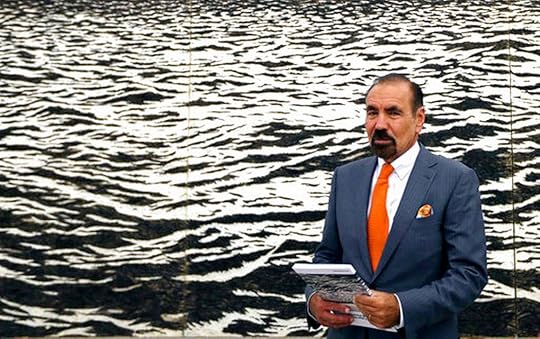 sea-escape),” by Yoan Capote, a sculptor and painter who lives in Havana. Four huge panels depict a choppy black sea. A closer look reveals that the choppy dark waters are in fact half a million fish hooks, sticking out from the canvas.
sea-escape),” by Yoan Capote, a sculptor and painter who lives in Havana. Four huge panels depict a choppy black sea. A closer look reveals that the choppy dark waters are in fact half a million fish hooks, sticking out from the canvas.
In Cuba, Obama policies only went so far
In Cuba, Obama policies only went so far Melanie Zanona, The Hill

HAVANA — Hanging in the office of a mechanics garage in central Havana, where Julio Álvarez has made a living off of renovating classic American cars and chauffeuring tourists around the island, a round yellow sign reads: “We use genuine Chevrolet parts.”
But those words do little to convey how hard Álvarez works behind the scenes to obtain American goods from the United States — a chronic challenge facing many Cubans despite a series of regulatory changes from President Obama designed to ease restrictions on trade and commerce between the U.S. and Cuba.
Treasury says more travel could be affected by Trump’s new Cuba policy
Mimi Whitefield, Miami Herald
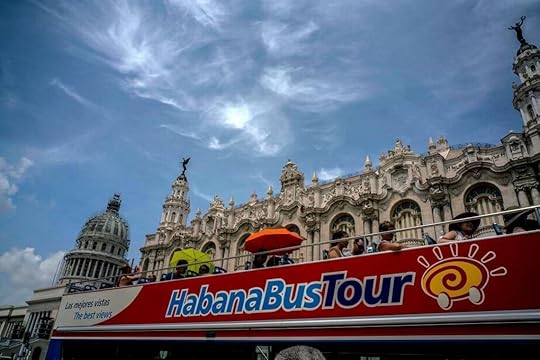
July 26, 2017
Mimi Whitefield, Miami Herald
Photo Credit: Al Diaz/Miami Herald
As the Trump administration continues to work on rules to implement its new Cuba policy, Treasury’s Office of Foreign Assets Control issued clarifications Tuesday on the U.S. interim policy.
When President Donald Trump announced his new policy for the island in Miami on June 16, OFAC said that the only category of authorized travel by U.S. travelers that would be affected were individual people-to-people trips. Trump said such trips would be prohibited because travelers have used that category to disguise trips that are purely for tourism, which the U.S. prohibits.
VOICE It’s More Than Cigars and Rum: Why Cuba Matters
James Stavridis, Foreign Policy
Photo Credit: Ramon Espinosa/AP
The fraught strategic relationship of the United States with Cuba — which was then a Spanish colony — began on Feb. 15, 1898, when the USS Maine, an aging, undersized battleship, mysteriously blew up in Havana Harbor. The Hearst newspaper chain, in what we would think of today as “fake news” or “alternative facts,” created an inflammatory storyabout Spanish saboteurs having destroyed the warship. As was the case after the Pearl Harbor attack almost half a century later, the nation was suddenly galvanized into war. “Remember the Maine” became the battle cry; a young Theodore Roosevelt lead a daring charge up San Juan Hill, which later won him the Medal of Honor, and launched his political career.
Cuba began a brief sojourn as a quasi-American colony, the United States stumbled its way through administering it, and eventually it became an independent nation, but one economically intertwined with its neighbor to the north until the communist revolution led by the Castro brothers in 1959. Cue a brutal dictatorship, the long twilight of the embargo, and a failed theory of how to shift the trajectory of America’s Cuba policy. When I spent three years as the head of U.S. Southern Command several years ago, we saw Cuba not as a security threat but as a potential source of refugees, the location of a detention camp at Guantánamo Bay, and an irritant to the Cuban-American population of southern Florida — but we saw it neither as a serious security challenge nor an opportunity for diplomatic engagement.
More than 1,300 Cuban migrants are being held in detention centers across the U.S.
Cuban migrant Reinier Aguila Esquivel talks with a Mexican soldier as he and other Cubans stranded in Nuevo Laredo, Mexico, attempt to pass to the international bridge following a rally and march from Plaza Juarez to the International Bridge, on Saturday, April 8, 2017. Bob OwenSan Antonio Express-News
Cuban migrant Reinier Aguila Esquivel talks with a Mexican soldier as he and other Cubans stranded in Nuevo Laredo, Mexico, attempt to pass to the international bridge following a rally and march from Plaza Juarez to the International
June 29, 2017
• How Donald Trump’s Company Violated the United States Embargo Against Cuba
Updated | A company controlled by Donald Trump, the Republican nominee for president, secretly conducted business in Communist Cuba during Fidel Castro’s presidency despite strict American trade bans that made such undertakings illegal, according to interviews with former Trump executives, internal company records and court filings.
Documents show that the Trump company spent a minimum of $68,000 for its 1998 foray into Cuba at a time when the corporate expenditure of even a penny in the Caribbean country was prohibited without U.S. government approval. But the company did not spend the money directly. Instead, with Trump’s knowledge, executives funneled the cash for the Cuba trip through an American consulting firm called Seven Arrows Investment and Development Corp. Once the business consultants traveled to the island and incurred the expenses for the venture, Seven Arrows instructed senior officers with Trump’s company—then called Trump Hotels & Casino Resorts—how to make it appear legal by linking it after the fact to a charitable effort.
On February 8, 1999, Seven Arrows billed Trump Hotels & Casino Resorts, Inc. for the $68,551.88 it had incurred prior to and including a trip to Cuba on behalf of Trump Hotels & Casino Resorts Inc.
The payment by Trump Hotels came just before the New York business mogul launched his first bid for the White House, seeking the nomination of the Reform Party. On his first day of the campaign, he traveled to Miami, where he spoke to a group of Cuban-Americans, a critical voting bloc in the swing state. Trump vowed to maintain the embargo and never spend his or his companies’ money in Cuba until Fidel Castro was removed from power.
He did not disclose that, seven months earlier, Trump Hotels already had reimbursed its consultants for the money they spent on their secret business trip to Havana.
At the time, Americans traveling to Cuba had to receive specific U.S. government permission, which was granted only for an extremely limited number of purposes, such as humanitarian efforts. Neither an American nor a company based in the United States could spend any cash in Cuba; instead, a foreign charity or similar sponsoring entity needed to pay all expenses, including travel. Without obtaining a license from the federal Office of Foreign Assets Control (OFAC) before the consultants went to Cuba, the undertaking by Trump Hotels would have been in violation of federal law, trade experts say.
Officials with the Trump campaign and the Trump Organization did not respond to emails seeking comment on the Cuba trip, further documentation about the endeavor or an interview with Trump. Richard Fields, who was then the principal in charge of Seven Arrows, did not return calls seeking comment.
Following the publication of this article on Newsweek.com, Kellyanne Conway, Trump’s campaign manager, was asked about the allegations on the television program The View. She replied that, “They paid money, as I understand, in 1998,” but went on to say that Trump had never invested in the Caribbean nation. In that statement, Conway has acknowledged that Trump broke the law. Paying the money for the business trip and meetings in Cuba – regardless of whether it resulted in an additional investment or casino deal – would directly violate the law.
A former Trump executive who spoke on condition of anonymity says the company did not obtain a government license prior to the trip. Internal documents show that executives involved in the Cuba project were still discussing the need for federal approval after the trip had taken place.
OFAC officials say there is no record that the agency granted any such license to the companies or individuals involved, although they cautioned that some documents from that time have been destroyed. Yet one OFAC official, who agreed to discuss approval procedures if granted anonymity, says the probability that the office would grant a license for work on behalf of an American casino is “essentially zero.”
Prior to the Cuban trip, several European companies reached out to Trump about potentially investing together on the island through Trump Hotels, according to the former Trump executive. At the time, a bipartisan group of senators, three former secretaries of state and other former officials were urging then-President Bill Clinton to review America’s Cuba policy, in hopes of eventually ending the decades-long embargo.
The goal of the Cuba trip, the former Trump executive says, was to give Trump’s company a foothold should Washington loosen or lift the trade restrictions. While in Cuba, the Trump representatives met with government officials, bankers and other business leaders to explore possible opportunities for the casino company. The former executive says Trump had participated in discussions about the Cuba trip and knew it had taken place.
The fact that Seven Arrows spent the money and then received reimbursement from Trump Hotels does not mitigate any potential corporate liability for violating the Cuban embargo. “The money that the Trump company paid to the consultant is money that a Cuban national has an interest in and was spent on an understanding it would be reimbursed,’’ says Richard Matheny, chair of Goodwin’s national security and foreign trade regulation group, based on a description of the events by Newsweek. “That would be illegal. If OFAC discovered this and found there was evidence of willful misconduct, they could have made a referral to the Department of Justice.”
Shortly after Trump Hotels reimbursed Seven Arrows, the two companies parted ways. Within months, Trump formed a presidential exploratory committee. He soon decided to seek the nomination of the Reform Party, which was founded by billionaire Ross Perot after his unsuccessful 1992 bid for the White House.
Donald Trump at a taping of “Larry King Live” on CNN in New York City on October 14, 1999. Trump said he was moving toward a possible bid for the United States presidency with the formation of a presidential exploratory committee. Reuters
Trump launched his presidential campaign in Miami in November 1999. There, at a luncheon hosted by the Cuban American National Foundation, an organization of Cuban exiles, he proclaimed he wanted to maintain the American embargo and would not spend any money in Cuba so long as Fidel Castro remained in power. At the time, disclosing that his company had just spent money on the Cuba trip, or even acknowledging an interest in loosening the embargo, would have ruined Trump’s chances in Florida, a critical electoral state where large numbers of Cuban-Americans remain virulently opposed to the regime.
“As you know—and the people in this room know better than anyone—putting money and investing money in Cuba right now doesn’t go to the people of Cuba,’’ Trump told the crowd. “It goes to Fidel Castro. He’s a murderer. He’s a killer. He’s a bad guy in every respect, and, frankly, the embargo must stand if for no other reason than, if it does stand, he will come down.”
Its Stock Price Had Collapsed
By the time Trump gave that speech, 36 years had passed since the Treasury Department in the Kennedy administration imposed the embargo. The rules prohibited any American person or company—even those with operations in other foreign countries—from engaging in financial transactions with any person or entity in Cuba. The lone exceptions: humanitarian efforts and telecommunications exports.
The impact of the embargo intensified in 1991, when the collapse of the Soviet Union ended its oil subsidies to the island and triggered a broad economic collapse. By 1993, Cuba faced extreme shortages, and Castro was forced to start printing money solely to cover government deficits. Three years later, the U.S. Congress passed the Helms-Burton Act, which codified the embargo into law and worsened Cuba’s economic decline. With many financial options closed off, Cuba attempted to find overseas investment to modernize its tourism industry and other businesses.
Fidel Castro speaks with his brother Raul Castro, right, during the morning session of the Cuban National Assembly on December 21, 1998. Reuters
The first signs that American policy might be shifting came in March 1998, when President Clinton announced several major changes. Among them: resuming charter flights between the United States and Cuba for authorized Americans, streamlining procedures for exporting medical equipment and allowing Cubans in the U.S. to send small amounts of cash to their relatives on the island. However, Americans and American companies still could not legally spend their own money in Cuba.
That fall, as critics pressured Clinton to further loosen the embargo, Trump Hotels saw an opportunity. Like the Communist regime, the company was struggling, having piled up losses for years. In 1998 alone, Trump Hotels lost $39.7 million, according to the company’s financial filings with the Securities and Exchange Commission. Its stock price had collapsed, falling almost 80 percent from a high that year of $12 a share to a low of just $2.75. (After multiple bankruptcies, Trump severed his ties with the company; it is now called Trump Entertainment Resorts and is a subsidiary of Icahn Enterprises, run by renowned financier Carl Icahn.)
The company was desperate to find partners for new business that offered the chance to increase profits, according to another former Trump executive who spoke on condition of anonymity. The hotel and casino company assigned Seven Arrows, which had been working with Trump for several years, to develop such opportunities, including the one in Cuba.
On February 8, 1999, months after the consultants traveled to the island, Seven Arrows submitted a bill to Trump Hotels for the $68,551.88 it had “incurred prior to and including a trip to Cuba on behalf of Trump Hotels & Casino Resorts Inc.”
The 1999 document also makes clear that executives were still discussing the legal requirements for such a trip after the consultants had already returned from Cuba. The government does not provide after-the-fact licenses.
“Under current law trips of the sort Mr. Fields took to Cuba must be sanctioned not only by the White House but are technically on behalf of a charity,’’ the bill submitted to Trump Hotels says. “The one most commonly used is Carinas Cuba.”
The instructions contain two errors. First, while OFAC is part of the executive branch, the White House itself does not provide licenses for business dealings in Cuba. Second, the correct name of the charity is Caritas Cuba, a group formed in 1991 by the Catholic Church, which provides services for the elderly, children and other vulnerable populations in the Caribbean nation. Caritas Cuba did not respond to emails about contacts it may have had with Trump Hotels, Seven Arrows or any individuals associated with them.
The invoice from Seven Arrows was submitted to John Burke, who was then the corporate treasurer of Trump Hotels. In a lawsuit on a different legal issue, Burke testified that Trump Hotels paid the bill in full, although he denied recognizing the document.
‘Totally False’
Donald Trump at a taping of “Larry King Live” on CNN in New York City on October 14, 1999. Reuters
The Cuba venture was one of two assignments given to Seven Arrows at that time, and the second has already emerged as an issue in the GOP nominee’s bid for the presidency. Trump Hotels also paid the consulting firm to help develop a deal with the Seminole tribe of Florida to partner in a casino there. Knowing that the Florida Legislature and governor opposed casino gambling in the state, Trump authorized developing a strategy to win over politicians to get the laws changed in an effort named the “Gambling Project.” The law firm of Greenberg Traurig was retained to assemble the strategy. A copy of the plan prepared by the lawyers showed the strategy involved hiring multiple consultants, lobbyists and media relations firms to persuade the governor and the Legislature to allow casino gambling in the state. The key to possible success? Campaign contributions.
The plan states “the executive and legislative branches of Florida government are driven by many influences, the most meaningful of which lies in campaign giving.” For the Legislature, it recommends giving to “leadership accounts” maintained by state political parties, rather than to individual lawmakers, because “this is where the big bucks go and the real influence is negotiated.” Records show Seven Arrows also incurred $38,996.32 on its work on the project, far less than it spent for the Cuba endeavor.
Aside from deceiving Cuban-Americans, records of the 1998 initiatives show that Trump lied to voters about his efforts in Florida during that period. At the second Republican presidential debate in September 2015, one of Trump’s rivals, Jeb Bush, said the billionaire had tried to buy him off with favors and contributions when he was Florida’s governor in an effort to legalize casino gambling in the state. “Totally false,’’ Trump responded. “I would have gotten it.”
The documents obtained by Newsweek give no indication why the $39,000 spent on Seven Arrows’ primary assignment—arranging for a casino deal with the Seminole tribe—was so much less than the $68,000 expended on the Cuba effort. The former Trump executive could not offer any explanation for the disparity.
Though it has long been illegal for corporations to spend money in Cuba without proper authorization, there is no chance that Trump, the company or any of its executives will be prosecuted for wrongdoing. The statute of limitations ran out long ago, and legal analysts say OFAC’s enforcement division is understaffed, so the chances for an investigation were slim even at the time.
And perhaps that was the calculation behind the company’s decision to flout the law: the low risk of getting caught versus the high reward of lining up Cuban allies if the U.S. loosened or dropped the embargo. The only catch: What would happen if Trump’s Cuban-American supporters ever found out?
Cuba’s organic urban gardens have a desperate history
BY BILL WEINBERG
Special to the Miami Herald
HAVANA
Amid the bustle of the current tourism boom, it’s easy to forget that it was a different scene a generation ago during Cuba’s “Special Period,” following the collapse of the former Soviet Union and an end to subsidies.
In the 1990s, bicycles imported from China were ubiquitous on Havana’s streets, cars few and far between. Gas stations were closed, the infrequent public buses dangerously overcrowded, most storefronts shuttered.
But in that quieter city, gardens sprung up on vacant lots, corn growing between apartment blocs. In rural agriculture, there was a push for organic methods, in the absence of fertilizers.
ADVERTISING
“After the Special Period, some models did not survive, like the bicycle,” said Gina Rey, an urban planning specialist at the capital’s San Gerónimo University. “Others have been maintained, such as the urban gardens that are now part of the national program of Urban Agriculture, which has continued its growth and development in a sustainable manner. In Havana, the results have been good, and this can continue improving at the community level, with an ever more participatory process in the city’s neighborhoods.”
[image error]
Just blocks away from the Plaza of the Revolution, a worker tends to the urban garden planted with rows of spinach, lettuce, chives, celery, parsley, cauliflower and other greens.
Bill Weinberg For the Miami Herald
Havana’s informal family gardens have also “increased a lot, and are cultivating medicinal plants and condiments for the kitchen,” Rey said.
Gentrification has threatened community gardens in many American cities, and something akin to gentrification is already seen in Old Havana. Here, the tourist economy booms; trendy shops, bars and galleries proliferate. Much foreign capital is involved — mostly European and Canadian.
The Manzana de Gómez, a century-old building on the western border of Old Havana, symbolizes the changes. Built as a commercial center for the island’s elite during the sugar boom, it was turned into classrooms after the Revolution, then mostly abandoned in the Special Period.
It recently reopened as the Gran Hotel Manzana Kempinski with Cuba’s first luxury mall, displaying Bulgari watches and French fragrances, on the ground floor. Investment comes from the business arm of Cuba’s military, that institution most associated with the Revolution.
But walk two blocks west into Central Havana, and the quasi-gentrification ends.
In the working-class barrios of Central Havana, residents live in what would be considered slum conditions in the United States — deteriorating buildings, overcrowded apartments, the occasional rubble-filled lot.
Meanwhile, the urban farms can be found in the greener, more spread-out districts such as Vedado, to the west of Central Havana.
Here, just blocks away from the iconic Plaza of the Revolution, big lots are planted with rows of spinach, lettuce, chives, celery, parsley, cauliflower. Workers till the ground behind fences intertwined with fruit-bearing vines.
[image error]
Just blocks away from the iconic Plaza of the Revolution, big lots are planted with rows of spinach, lettuce, chives, celery, parsley, cauliflower.
Bill Weinberg For the Miami Herald
These farms began spontaneously, yet often under direction of bureaucrats in the government office buildings — to feed their employees during the Special Period.
There are four members of Organopónico Plaza collective, and their salary depends on yield — often still purchased by government offices to feed employees. Salaries are supplemented by sales of produce to local residents from the stall at the farm’s entrance and to similar private stands around the city.
Jorge Albertini, director of Organopónico Plaza, quit his job as a police officer to oversee the farm when it was formalized. “I like this better,” he said, smiling.
The organopónicos, all on state lands that were vacant at the time of the Special Period, are organized as Unidades Empresariales de Base — Community Business Units — overseen by Havana’s Empresa Agropecuaria Metro, or Metropolitan Agriculture Company. These are a form of the Basic Cooperative Production Units, or UBPCs, established by decree of the Council of Ministers in 1993.
Decree Law 142 ushered in what some consider Cuba’s “third agrarian reform” — after those decreed in 1959 and 1963. Many of the big state farms in the countryside were broken up into UBPCs, and this model also incorporated the urban farms that sprang up in the cities. By the mid ‘90s, there were some 3,000 UBPCs across the country.
[image error]
Urban farms can be found in the greener, more spread-out districts of Havana. Produce sales to local residents are often handled from stalls at the farm’s entrance.
Bill Weinberg For the Miami Herald
In this same thrust of reform, the Mercados Agropecuarias Libres — Free Agricultural Markets — were established in 1994. This allowed residents to buy local produce from private stands, outside the official system of distribution and rationing, known as Acopio (Spanish for “gathering”). The fruits of organopónicos can be seen on street-side stands throughout Central Havana.
Isbel Díaz Torres, of the independent Cuban Critical Observatory, a citizen’s intiative organization, said that contrary to official claims, gardens that have not been brought into the official organopónico program are being abandoned around the city.
“The perspective of growing your own food on plots proved temporary,” he said, “now that we have oil and chemicals again,” supplied primarily by Venezuela.
While organics have a niche in the cities, in the countryside the agro-industrial model has recovered with the economy, Díaz said. He points to growing areas under control of military-owned CubaSoy, using GMO seeds to produce soy for animal feed.
“In the ‘90s, there was a diversification of crops and a move to organic methods, because it became necessary,” Díaz said. “Today, experts are going to seminars around the world to talk about this, while Cuba is moving away from this model.”
Still, there are rural areas where organic methods have taken root.
One notable areas is Viñales, a town in the Sierra de los Órganos of Pinar del Río province, where an eco-tourism economy is booming.
[image error]
In Viñales, where eco-tourism is booming, one of the biggest draws is the Finca Agro-Ecológica El Paraíso (Paradise Agro-Ecological Farm).
Bill Weinberg For the Miami Herald
Pinar del Río , which is west of Havana, was singled out for experiments in self-sufficient agriculture in the 1990s, and this has served Viñales well. One of the biggest tourist draws is the Finca Agro-Ecológica El Paraíso (Paradise Agro-Ecological Farm). Busloads of tourists arrive daily for a multi-course lunch of greens, tubers and legumes — all organic, all grown on the Finca — followed by a tour of the vegetable beds and fruit trees.
“Organic agriculture began here in the Special Period, and it has been expanding little by little since then,” says Finca owner Wilfredo García Correa. “The Special Period provided the impetus, but we came to realize the benefits. Every year more campesinos in Viñales go organic.”



[image error]
[image error]
A worker tends to an urban garden in Havana. Bill Weinberg For the Miami Herald
Top diplomatic negotiator in Cuba warns Trump: ‘aggression doesn’t work’
Exclusive: Josefina Vidal, who has led the island’s negotiating team since 2013, says Cuba will not be cowed by the incoming president’s bluster and threats
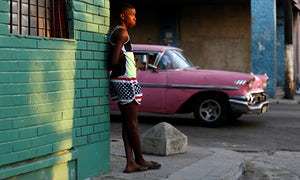
For years we have been talking to a sophisticated president. Now we have a gentleman who is capable of saying anything
Ricardo Alarcón, Cuban politician
Senior Cuban negotiators say the island will not be cowed by intimidation and bluster from Donald Trump, despite the incoming US president’s threat to rekindle cold war animosities.
“Aggression, pressure, conditions, impositions do not work with Cuba. This is not the way to attempt to have even a minimally civilised relationship with Cuba,”Josefina Vidal, a foreign ministry department head, told the Guardian.
Cuba’s wait-and-see approach is guided by Trump’s unpredictability – and the knowledge that all previous 11 US administrations held talks with representatives from Havana despite the often hawkish public rhetoric coming from Washington.
Vidal has led the island’s negotiating team with the US since 2013, including 18 months of secret discussions, facilitated by Canada and the Vatican, that led to the joint announcement by Cuban president Raúl Castro and Barack Obama on 17 December 2014 of a normalisation of diplomatic relations.
Trump has warned that he is prepared to undo that progress. During the US election campaign, he told an audience of rightwing Cuban exiles in Miami: “All of the concessions that Obama has granted the Castro regime were done through executive order, which means the next president can reverse them and that is exactly what I will do unless the Castro regime meets our demands.”
But Cuban officials say that they plan to wait for action rather than words because Trump has repeatedly flip-flopped on the issue of rapprochement – and also put his business interests above his country’s laws.
During the campaign, it emerged that Trump sent his corporate representatives to Cuba in 1998, and again in the 2000s to probe for openings, in violation of the US trade embargo. Three months after launching his campaign to become the Republican party candidate, Trump was the only GOP contender to express a positive opinion of the reopening of bilateral relations, saying “the concept of opening with Cuba is fine”.
Trump’s transition team includes several figures linked to Cuban American groups which take a hard line on Cuba, advocating the continuation of the US blockade and an end to rapprochement.
For years we have been talking to a sophisticated president. Now we have a gentleman who is capable of saying anything
Ricardo Alarcón, Cuban politician
Dr Yleem Poblete has been named to Trump’s national security council “landing team”, lawyer John Barsa to the Department of Homeland Security, and lawyer Mauricio Claver-Carone an adviser to the treasury department. Claver-Carone is executive director of the US-Cuba Democracy Pac and among the fiercest opponents of Obama’s Cuba policy.
But Vidal says it is “‘too early” to predict which path the new administration will follow. “There are also other functionaries, businessmen, that Trump has named, including in government roles, who are in favour of business with Cuba, people who think that the US will benefit from cooperation with Cuba, on issues linked to the national security of the US,” she points out.
Her analysis of Trump’s unpredictability – particularly in contrast to Obama – is echoed by Ricardo Alarcón, until recently considered the third-most influential man in Cuban politics.
“For two years we have been talking to a sophisticated president with an intelligent, skillful discourse. Now we have a gentleman who is capable of saying anything and nobody is sure what he is going to do,” said Alarcón, who spent 30 years representing Cuba at the United Nations and another 20 years as president of the country’s national assembly before retiring in 2013.

